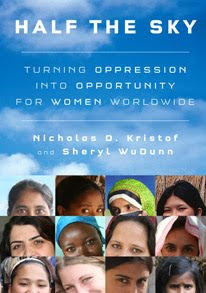Here's the last part of my cruise essay. If you want to read the whole thing, start with these two posts:
And then read this:
++++
Foreign LandsOne huge difference between my cruise and DFW’s is that he never left the boat when they were in port. This seems ridiculous to me, like going to a Mexican restaurant and ordering the hamburger. He never really gives a reason for this, but takes advantage of the boat’s solitude while everyone else is enjoying onshore excursions.
Our cruise had two stops, both in Mexico off the Yucatan Peninsula. I was most excited about my day trip to Chichen Itza, a famous site of Mayan ruins. It’s like the Vegas of Mayan ruins: a wonder of the ancient world complete with a large pyramid, tons of temples, and the largest ball court in ancient Mesoamerica.
My trip to Chichen Itza was almost a disaster. When I got on the bus that morning I thought that I had left my camera, notepad, and leisure-reading paperback back on the boat. Taking a two-hour bus ride to visit one of the Wonders of the World without any way to document it would be a special kind of hell for me. Luckily, it turned out that, in my rush to get ready that morning, I had stuffed all of those things into my insulated cooler.



I had a good touristy time at Chichen Itza, taking lots of pictures and reflecting on the modern way that Europeans now invade the Mayan civilization: as armies of tourists.

Our second day in port was in Cozumel, an island off the Yucatan peninsula. It’s a crowded tourist destination with dozens of cruise ships arriving daily. Instead of taking advantage of any of the planned shore excursions the cruise line offered, I decided to just explore the town on my own.
I understand there are people who enjoy shopping. For them, it is not a chore, but a hobby. They plan afternoons, weekends, even entire vacations around this hobby. I am not one of those people. So I was a little disconcerted to encounter the hardcore aggressive manner that wares were peddled in downtown Cozumel. It was like this at Chichen Itza as well, but Cozumel was commerce on steroids.
After I left the ship, one of the first sites I saw in Cozumel were a bunch of t-shirts for sale in a shop window. They were all pretty tacky or offensive, but one of them really got my blood boiling: a t-shirt that said, “SPEAK FUCKING ENGLISH! COZUMEL.” This was the perfect representation of all that is wrong with arrogant imperial tourism. It is the Ugly American at its worst, and I was angry and ashamed that I was a part of it.

I know the uber-hyped commerce was simply a result of locals trying to make a peso. They need to make a living. But it was not my style. I could not walk down the sidewalk, look at items in a window, or make eye contact with any locals (as we Midwesterners are wont to do) without having them try to sell me something. “What do you like, Amigo? I give you good price...” was the refrain I heard at least a hundred times. When I went into the town local history museum, it was quite a respite that only two people inside the building tried to sell me something. I even had a cop on a corner try to sell me a taxi ride.
At one point I took to walking along some side streets just to get away from the constant harassment. A guy on the other side of the street shouted over to me, trying to sell jewelry. When I said, “No, thanks,” he asked, “What are you looking for?” I’m looking to be left alone, I wanted to shout. This task was made even more difficult by the fact that I did actually have to buy some souvenirs for friends and family. I couldn’t come back from my cruise empty-handed. But every time I stopped to just look at something, I was accosted. This is not how I like to conduct business.
FriendsDavid Foster Wallace and I both cruised alone. We were outsiders—out of our element, out of our comfort zone, out of our demographic.
On the first night of the cruise I tried to attend a “Friends of Dorothy” social in the wine bar. This was an event for GLBT (gay, lesbian, bisexual, transsexual) people. Although I don’t strictly fall into any of those categories, many of my closest friends do, and we often share the same values. I guess you could call me a friend of Friends of Dorothy. So I was hoping this would be a way to meet some like-minded people on the ship. Unfortunately, when I showed up at the event, there was no one there. I would try several more times to attend such events, since the Funtimes announced one every evening, but I never once saw anyone show up for them. This is perhaps the best illustration of the demographics of the cruise I was on.
I did meet people, though, and like DFW, dinner was a good venue for that. (DFW provides an entertaining and detailed description of his dining mates in one of his longer footnotes that spreads over two pages. The man obsessed with footnotes. His 97-page essay features 137 of them. And he does advanced things with them, like double footnotes (two of them for the same passage), sub-footnotes (e.g. 137a) and footnotes within footnotes. I couldn’t decipher his formula for what he included in the main text, a parenthetical aside, a footnote, or a sub-footnote within a footnote.)
Every evening I ate at the same table with the same people. I dined with three parties of three: a married couple from Mississippi with the wife’s single friend, a married couple from Minnesota with the wife’s younger brother, and a mother from New Jersey with her two adult daughters. What was interesting to me about the geographic mix at the table was how everyone seemed to play to stereotypes: the taciturn Minnesotans, the loud pushy New Jerseyans, the laid-back, friendly coastal Mississippians, and... whatever I represented from Central Illinois. By the end of the week we were exchanging email addresses to keep in touch (we haven’t), but that first night the conversation was awkward. We mostly talked about football.
It was awkward being surrounded by so many shiny happy people and not having anyone close to talk to. I carried a book around with me every where I went-- a paperback of Gulliver’s Travels, which I thought would be appropriate-- but I didn’t read much of it because I often got bored or restless and needed to see what was shaking elsewhere on the boat. As if the only way to combat my solitude was to keep moving and mingling among the people. Once when I was doing my rounds, I came upon a family of about 30 Asian-Americans trying to get a huge group picture. They asked me if I would take the picture and I happily obliged, while they handed me four different cameras. That was the highlight of my afternoon.
I spent much of the first half of the cruise being lonely and mopey, but then things started to turn around.
My best source of socialness on the cruise was the dance club, where I hung out every night well past my usual bed time (9:30). It was there that I met a group of dancing nurses who shook their booty every night. They invited me along to some of their excursions, and one night after we closed the dance club I took them to the 24-hour pizza place near the pool. (I’d discovered it during my many walks around the ship.) DFW didn’t mention any dancing nurses from his cruise, but I get the impression his cruise had a much more, uh, mature demographic. According to him, Carnival has a reputation as the party boat.
By the last afternoon of the cruise, I was feeling much more like the life of the party. In one half hour period I ran into three people I knew as I walked around the boat. I toasted someone’s deceased mother, quaffed free drinks at a farewell party, and had a new friend buy me a beer at the casino bar. At dinner, I entertained my dinner mates with tales of the day, and I finished up the week-long cruise back at the casino bar with my dancing nurse friends, up till 2:00 am even though we had to be off the boat in about five hours.
And when I got home, I made a new friend in David Foster Wallace, who took me along on a cruise of his own.



 I'm generally not a fan of listening to other people's dreams. Dreams are your subconscious taking out the trash. I don't need to sift through the discarded coffee grounds and junk mail of your mind. (Unless, as Nicholson Baker says, we're sleeping together. Then I take my job seriously.)
I'm generally not a fan of listening to other people's dreams. Dreams are your subconscious taking out the trash. I don't need to sift through the discarded coffee grounds and junk mail of your mind. (Unless, as Nicholson Baker says, we're sleeping together. Then I take my job seriously.)




